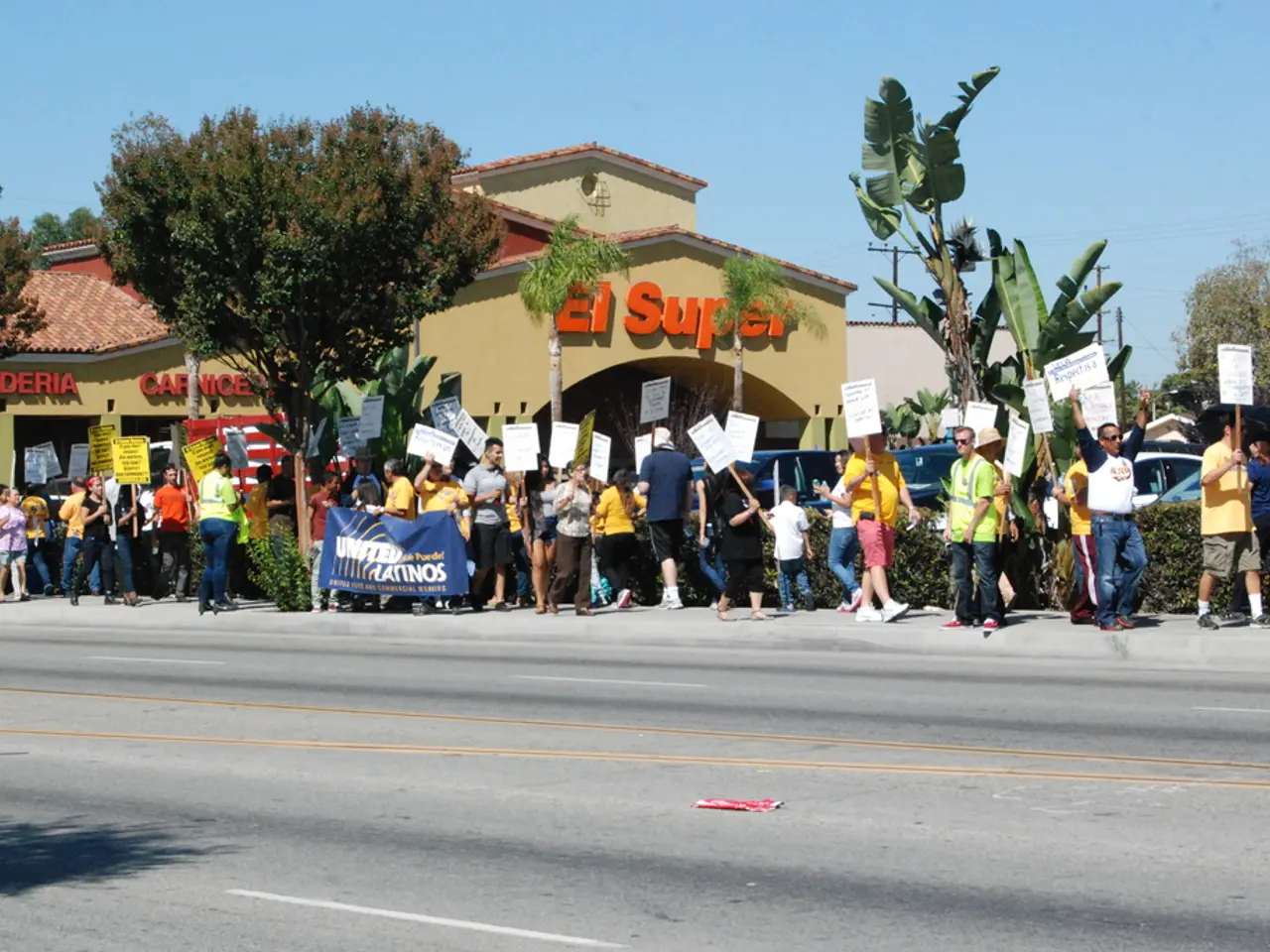Minister of Economy's pension plan infuriates Klingbeil
The current political landscape in Germany is abuzz with debate, as Finance Minister Lars Klingbeil and Economy Minister Katherina Reiche square off over the issue of raising the retirement age and working conditions. While the federal government, including Klingbeil, officially has no plans to increase the retirement age, as stated in the coalition agreement, Reiche has called for extending working lives, sparking public debate.
Reiche argues that longer working lives are necessary to address the looming financial challenges facing Germany's pension system amid an increasing budget shortfall. With the federal government facing a projected budget deficit of around 170 billion euros by 2029, exceeding earlier estimates, the need for reform has become more urgent[1][2].
On the other hand, Klingbeil is focused on managing this budget shortfall while adhering to the coalition agreement's provisions, which emphasize a pension reform package with an “active pension” designed to encourage people to work longer through incentives rather than mandatory increases in the retirement age. Klingbeil's approach aims to balance fiscal responsibility with social acceptability and coalition commitments[1].
The disagreement reflects two positions: - Reiche advocates for raising the retirement age to ensure the sustainability of the pension system amid growing financial pressures. - Klingbeil supports incentive-based policies within coalition guidelines to encourage prolonged workforce participation without formal retirement age hikes.
Economist Veronika Grimm has weighed in on the debate, supporting Reiche's proposals. Grimm emphasizes the need for effective, cost-reducing measures that must be drastic in the pension insurance reform. She criticizes Finance Minister Klingbeil's budget plan, stating it does not show serious efforts to save money. Grimm claims that Klingbeil's budget plan involves running many things through debt-financed special funds, which she considers a shell game[1].
However, Klingbeil has expressed concern about the impact of Reiche's proposal on workers who already struggle to reach the retirement age of 67. He has criticized Reiche's proposal, stating it is insensitive to the hardships faced by many workers. Klingbeil has suggested that Reiche should visit workers in the field to understand the challenges they face[1].
The debate highlights broader tensions in German politics on how to manage demographic and fiscal pressures while maintaining fair work conditions for older workers. Reiche’s public call for longer working lives challenges the coalition consensus and introduces a more assertive stance on reforming work and retirement policies[1].
A survey commissioned by the Bild newspaper shows that Klingbeil's popularity has plummeted, with him slipping from fourth to eighth place in the current ranking of the most popular German politicians. Defense Minister Pistorius (SPD) is currently the most popular German politician, according to the same survey[1].
References: 1. Deutsche Welle (2022). German Economy Minister calls for later retirement age to save pensions. [online] Available at: https://www.dw.com/en/german-economy-minister-calls-for-later-retirement-age-to-save-pensions/a-61148208 2. The Local (2022). German government faces record budget deficit of €170bn by 2029. [online] Available at: https://www.thelocal.de/20220222/german-government-faces-record-budget-deficit-of-170bn-by-2029
- The debate over Germany's retirement age and working conditions is currently a hot topic in the realm of policy-and-legislation, as it is being discussed extensively in the context of politics and general news.
- The disagreement between Finance Minister Lars Klingbeil and Economy Minister Katherina Reiche on extending working lives has introduced a more assertive stance on reforming work and retirement policies, highlighting tensions in German politics.








